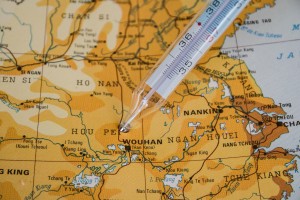
Geneva: China is yet to give required permission to the World Health Organisation’s international scientific team to visit Wuhan – the birth place of COVID-19 – to study the on the origins of the COVID-19 virus. “We are working with Chinese colleagues to ensure the international mission is able to proceed without further delay,” WHO Director-General Dr. Tedron Adhanom Ghebreyesus, told the Member States while briefing them on COVID-19, on January 7, 2021. Two days ago too, Dr. Ghebreyesus had reminded China to expedite the formalities for the visit. In fact the international scientific team had began travelling to China this week, as was agreed earlier.
Also read:
- Armed with successful vaccine trials and G-20’s financial support, WHO seeks to get rid of its pro-China tag
- Why shouldn’t WHO D-G attack the USA at the UNGA?
By August-end last year, the WHO’s two-member team tasked with investigating the origins of coronavirus was made to sit in Beijing for three weeks and could not visit Wuhan – where the first case of COVID-19 were traced at a sea food market in December 2019. This had made the USA, Australia and some Western countries question Beijing’s commitment to identifying the source of the pandemic.
It may be mentioned that it was on July 8, 2020, whe the WHO had announced that its experts would travel to China to prepare scientific plans for identifying the zoonotic source of the SARS-COV-2 virus. For this the experts were to work together with their Chinese counterparts and develop the scope and Terms Of References for a WHO-led international mission. The mission objective, as Dr. Ghebreyesus had then announced, was to advance the understanding of animal hosts for COVID-19 and ascertain how the disease jumped between animals and humans. This remains a grey area and raises enough concern after mink-related coronavirus strains found in human beings in Denmark.
In the meantime, Dr. Ghebreyesus also expressed his worries over the absence of equitable access to Corona vaccine. He told Member States that out of the 42 countries that have started vaccinating their high-risk populations with various COVID-19 vaccines, 36 are high-income and six are upper middle-income countries.
“This is clearly a problem and this problem is getting worse because some countries are pursuing new deals outside of COVAX offering higher prices,” he said. He added: “This compromises our collective commitment to equitable access…History will not judge us kindly if we fail the low- and middle-income countries in their hour of need and sharing is in the best interest of each and every country. We can only recover faster as a global community by sharing…We have to take action to address this.”
– global bihari bureau




